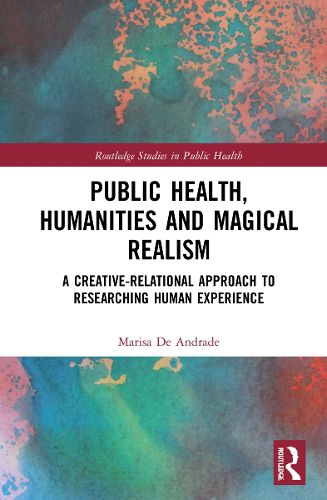Readings Newsletter
Become a Readings Member to make your shopping experience even easier.
Sign in or sign up for free!
You’re not far away from qualifying for FREE standard shipping within Australia
You’ve qualified for FREE standard shipping within Australia
The cart is loading…






This book calls for a re-conceptualisation of the public health evidence-base to include crucial forms of creative and relational data about people's lived experiences that cannot be accessed through the biomedical approach to generating and using evidence. Drawing from the author's ethical, ontological and epistemological dilemmas when studying controversial topics, and methodological evaluation framework to measure impacts of creative community engagement, the book argues that traditional methodologies and conceptualisations of evidence have the potential to exacerbate health inequalities by excluding and misrepresenting minorities. Fantastical realities based on 'truthful' research findings are intertwined with traditional public health approaches through artistic engagement with so-called 'hard-to-reach' groups. Working with their (sur)real life stories, the author reflects on how the population's breadth is inadequately reflected which threatens validity and generalisability in public health research and decision making. Through different ways of knowing (epistemology) and different ways of being (ontology), this book shows how to design studies, make recommendations and adapt services that are aligned with views and experiences of those living on the margins and beyond. As such, it is an essential read for public health researchers and students.
$9.00 standard shipping within Australia
FREE standard shipping within Australia for orders over $100.00
Express & International shipping calculated at checkout
This book calls for a re-conceptualisation of the public health evidence-base to include crucial forms of creative and relational data about people's lived experiences that cannot be accessed through the biomedical approach to generating and using evidence. Drawing from the author's ethical, ontological and epistemological dilemmas when studying controversial topics, and methodological evaluation framework to measure impacts of creative community engagement, the book argues that traditional methodologies and conceptualisations of evidence have the potential to exacerbate health inequalities by excluding and misrepresenting minorities. Fantastical realities based on 'truthful' research findings are intertwined with traditional public health approaches through artistic engagement with so-called 'hard-to-reach' groups. Working with their (sur)real life stories, the author reflects on how the population's breadth is inadequately reflected which threatens validity and generalisability in public health research and decision making. Through different ways of knowing (epistemology) and different ways of being (ontology), this book shows how to design studies, make recommendations and adapt services that are aligned with views and experiences of those living on the margins and beyond. As such, it is an essential read for public health researchers and students.